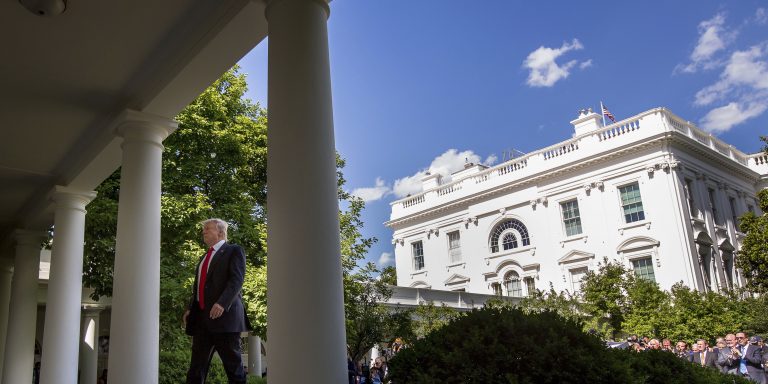INTELBRIEF
January 2, 2019
IntelBrief: 2019: New Beginnings & Old Challenges

- As 2019 begins, the U.S. and its allies will continue to deal with crises that started years ago and have now matured into critical threats.
- The U.S. faces numerous crises that warrant a multilateral response in a time when Washington is increasingly responding unilaterally.
- Among the many crises are accelerating climate change, growing Russian aggression and China’s assertive presence throughout Asia and the Indo-Pacific region.
- Confronting these challenges will require consensus building, a strategy the U.S. has primarily eschewed during the Trump administration.
.
For crises like accelerating climate change, growing Russian aggression and China’s increasingly assertive military posture in areas like the South China Sea, the fresh start often associated with a new year offers little respite. These challenges—among others, such as the persistent spread of the ideology of ‘bin Ladenism,’ intractable wars in Syria and Afghanistan and a rising tide of hyper-nationalistic politics—have been building for years, and in some cases decades. This confluence of crises requires a thoughtful, yet urgent, approach that is entirely devoid from the body politic of the U.S. and other Western nations, including the United Kingdom and Australia. Even though these challenges require a multilateral approach, comprehensive security cooperation and resilient international institutions, the past few years have witnessed a growing trend among nations that signals a desire to jettison the Cold War alliances that reliably served as a foundation for global stability since the end of World War II.
Perhaps the most significant issue facing the international community is one that influential policymakers and politicians in the U.S., including some in the White House and other high-ranking positions within government, dismiss out of hand as either a hoax or conspiracy: climate change. The wildfires in California, devastating hurricanes, flooding rain systems overlaying persistent drought and warmer temperatures combined in the last year to inflict significant damage across the U.S. These events generated discussions about how to mitigate the effects of rapid climate change, however, including the rising sea levels that threaten many locations on the Eastern seaboard. Still, a national dialogue is lacking, meaning that the chances of producing a whole-of-government commitment to building a resilient domestic infrastructure in the U.S. while reducing dependence on carbon-emitting energy production are slim. As the polar regions heat up and spin-off systems wreak havoc across the globe, the scale of the crisis will cascade, with dangerous consequences for the international community.
The issue of China’s assertive military posture in areas like the South China Sea is one the U.S. will be forced to address multilaterally and with well-developed strategies. China’s increased presence in what it sees as its historical sphere of influence is a fait accompli in some territories and has been consistent, both in its efforts to reshape the geopolitical landscape—literally in some cases—and in its indifference and even anger over the objections of its neighbors. China views its actions, which Beijing has undertaken for decades, as correcting wrongs that occurred throughout several centuries. The U.S. role as guarantor of naval free passage is running aground on the shoals of China’s determination to flex its muscles throughout Asia and the Indo-Pacific. One serious issue is that a significant percentage of trade and oil flow through these areas. With tensions mounting, escalation between the U.S. and China remains a worrisome possibility.
Russia continues to support a low-level insurgency in eastern Ukraine, still occupies the illegally-annexed Crimea region and remains unwavering in the Kremlin’s commitment to wage information warfare by relying on relentless influence operations and propaganda. Moscow enters 2019 as a determined and persistent foe to NATO and western democracies more broadly. Russia’s reversal into blatant autocracy and kleptocracy has been unfolding over the past 20 years. Vladimir Putin assumed the office of president on the final day in December 1999, and ever since, has accumulated and consolidated uncontested power. The oil-dependent economy and endemic corruption, the killing of journalists and dissidents and the absence of any genuine political alternative to Putin, have struck hard at Russian life. On the international stage, Russia is primarily viewed as a pariah that assassinates its critics and operates social media campaigns (and funds political campaigns) with one goal: exploit existing social and political divisions. Russia will continue to use this strategy because it has proven effective and, at least to date, has cost Putin and his cronies relatively little.
As 2019 commences, the challenges faced by the U.S. and others will linger unabated. The U.S.’ insistence on a unilateral approach to multilateral challenges is worse than counterproductive; it is actively destructive and encourages others to similarly abandon consensus, multilateralism and the cultivation of alliances based on shared values. These crises have taken years—and often far longer—to reach their respective critical stages. The longer they continue unaddressed, the more problematic they become, perpetuating a state of durable disorder with no clear end in sight.
.
For tailored research and analysis, please contact: info@thesoufancenter.org